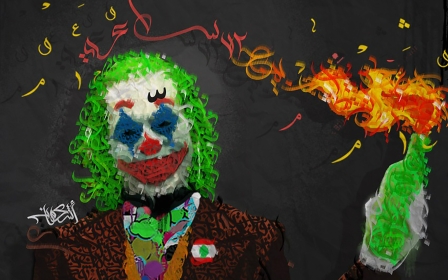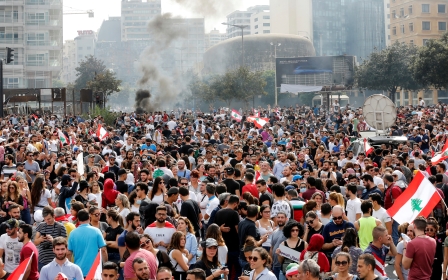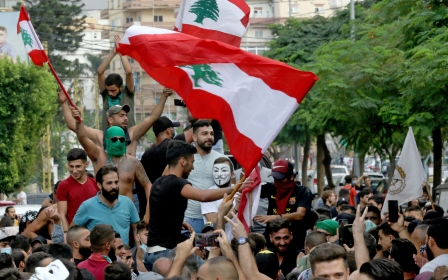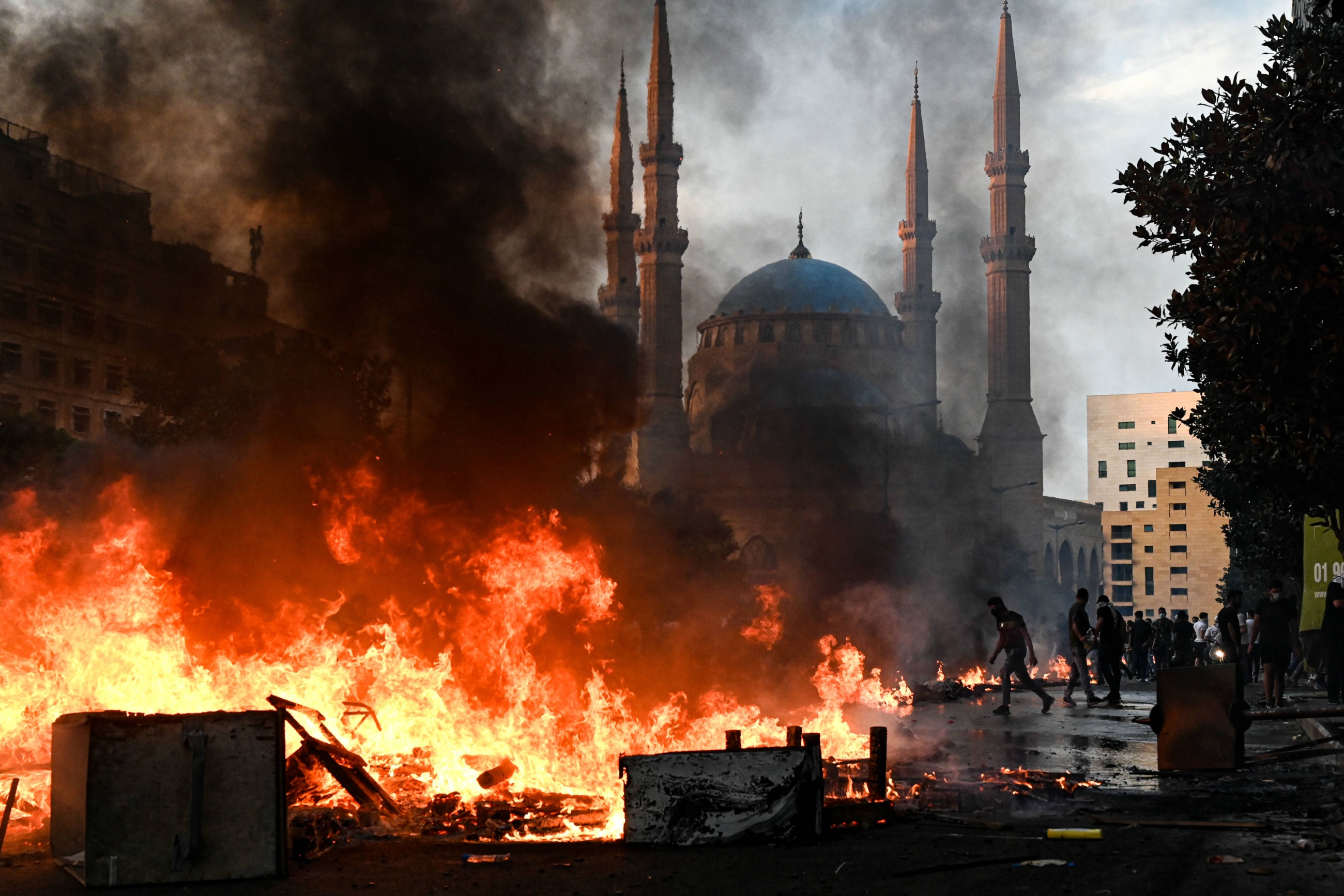
In pictures: Clashes in Lebanon as protesters demand leaders quit
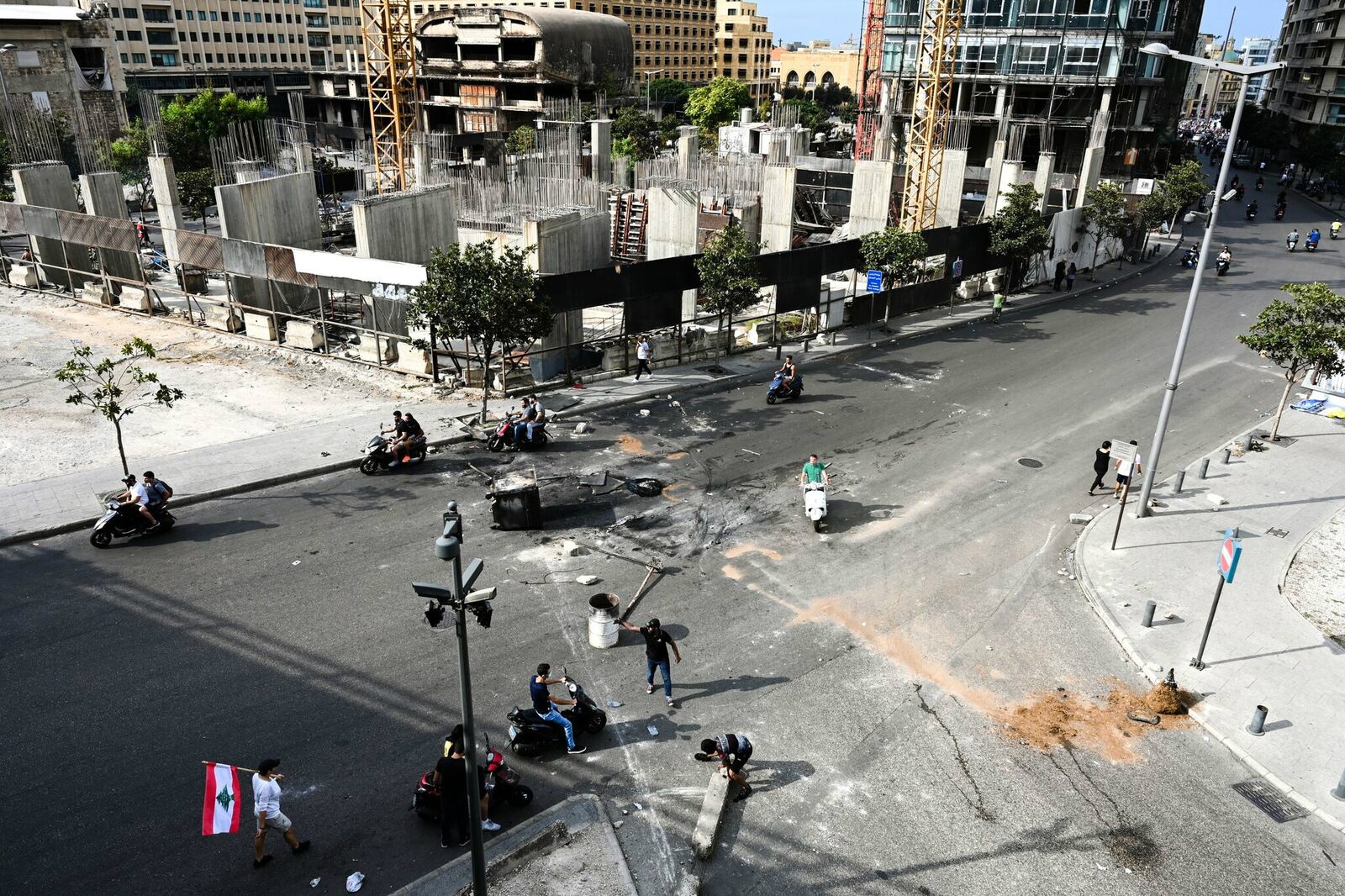
A group of protesters set up barricades on Friday on one of the main roads leading to Martyrs' Square in central Beirut. Dumpsters, railings and concrete blocks from nearby building sites are used to restrict access by anything larger than a motorcycle (MEE/Finbar Anderson)
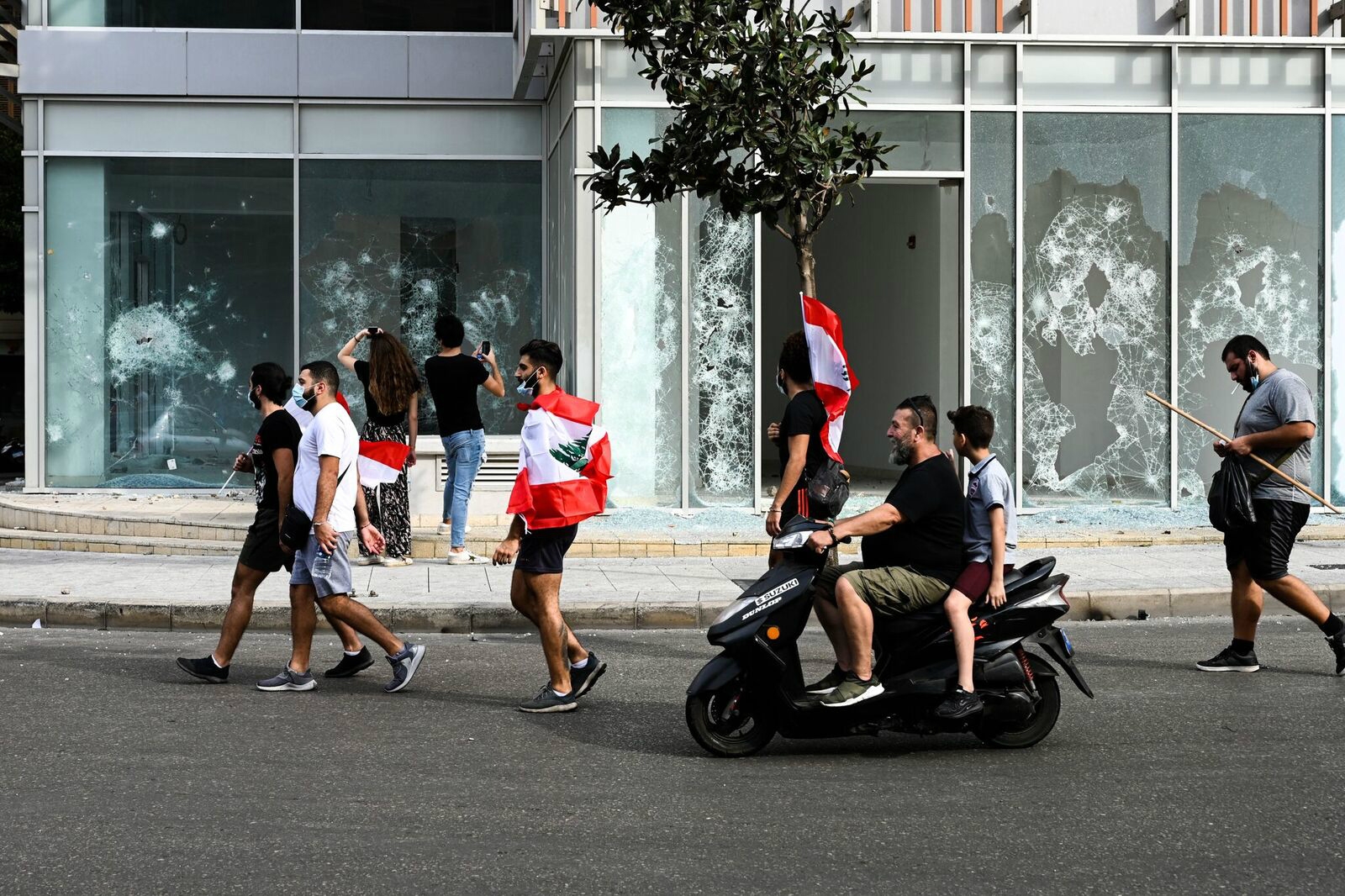
As protesters begin to arrive, some stop to survey the damage from the previous day's events. A number of shops, offices, and residential blocks under construction have been targeted, especially at night when clashes with security forces increase in intensity (MEE/Finbar Anderson)
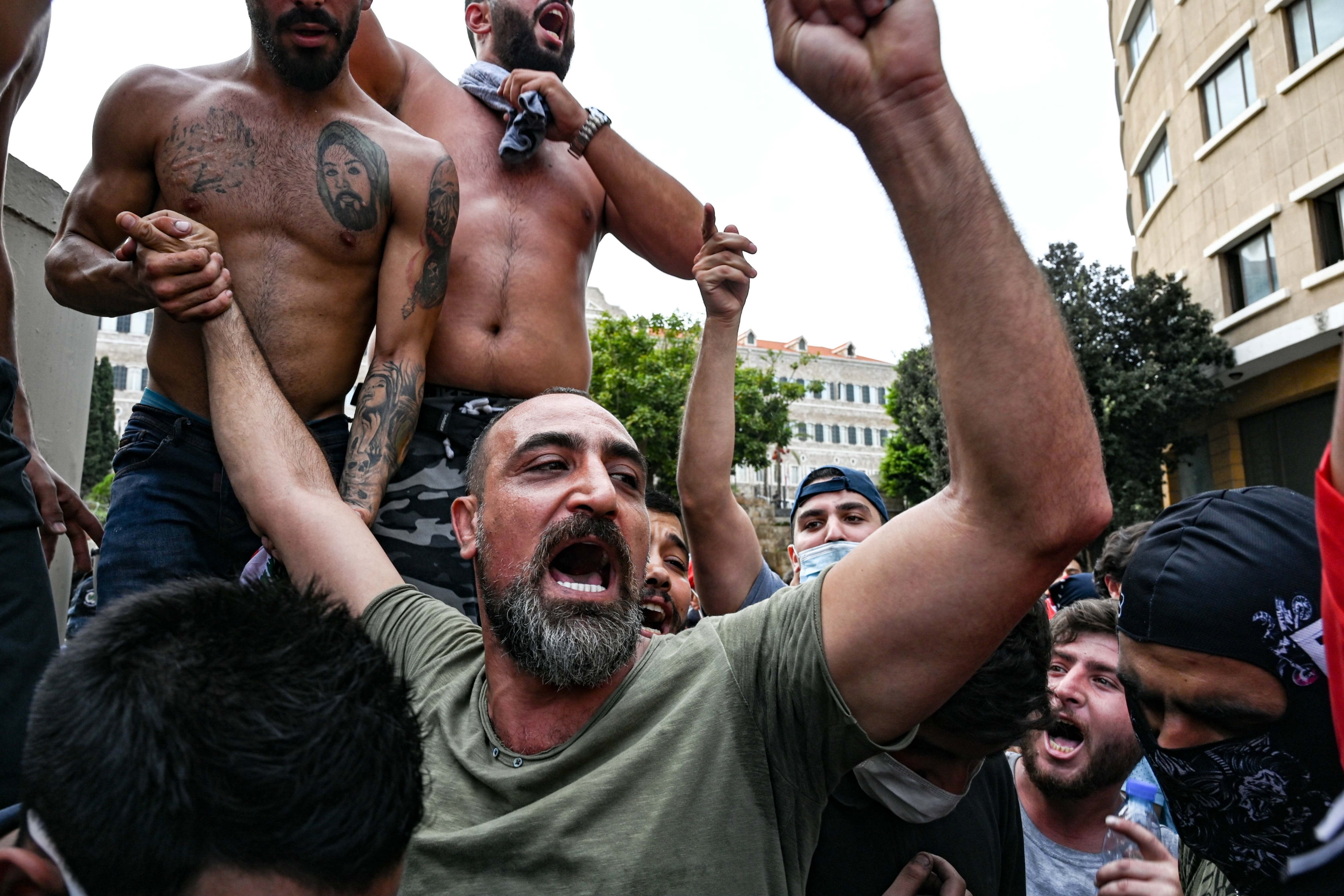
Abdo Chahine leads a chant in front of the Grand Serail (headquarters of the prime minister) building. The Lebanese actor is known for his roles in the movie Film Kteer Kbeer and the popular television drama Al Hayba (MEE/Finbar Anderson)
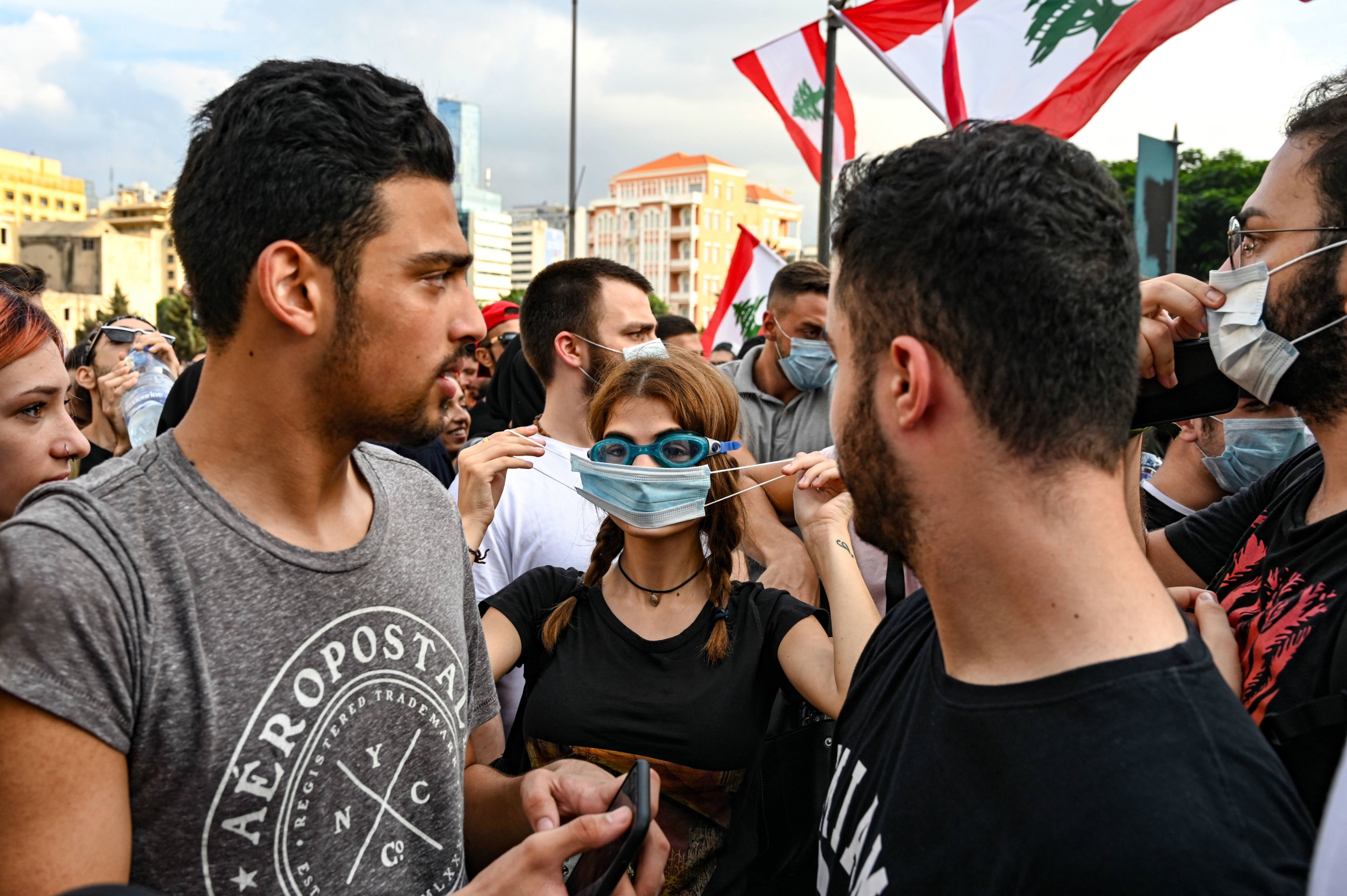
A protester prepares herself for a possible tear-gas attack by donning a face mask and swimming goggles. Security forces have used tear gas as one of their primary methods of crowd control (MEE/Finbar Anderson)
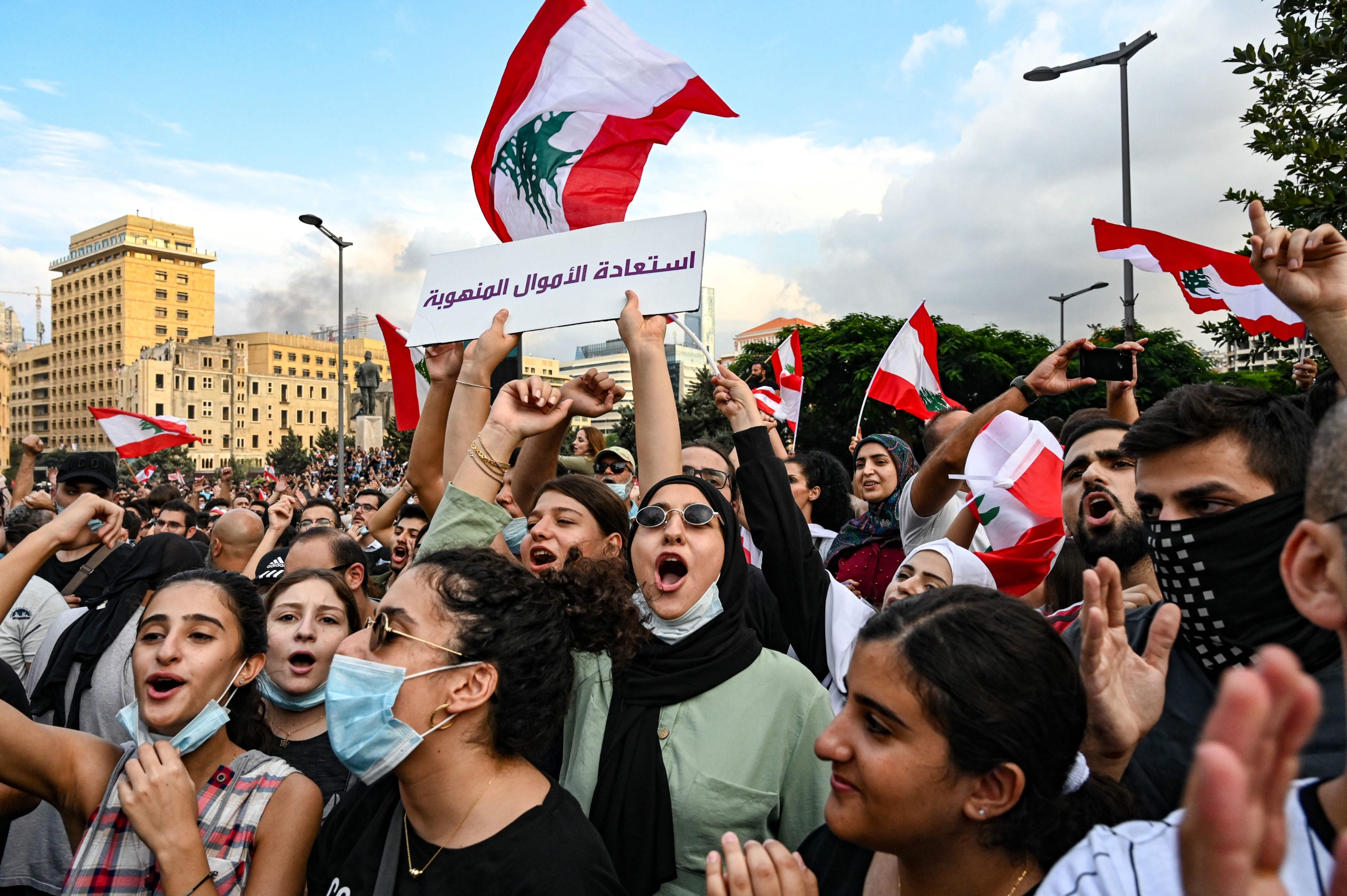
Young protesters chant together in Riad al-Solh square. Young Lebanese have come to the protests in their thousands. Universities, as well as schools and banks, were closed on Friday, with Education Minister Akram Chehayeb announcing that universities would remain closed through Saturday (MEE/Finbar Anderson)
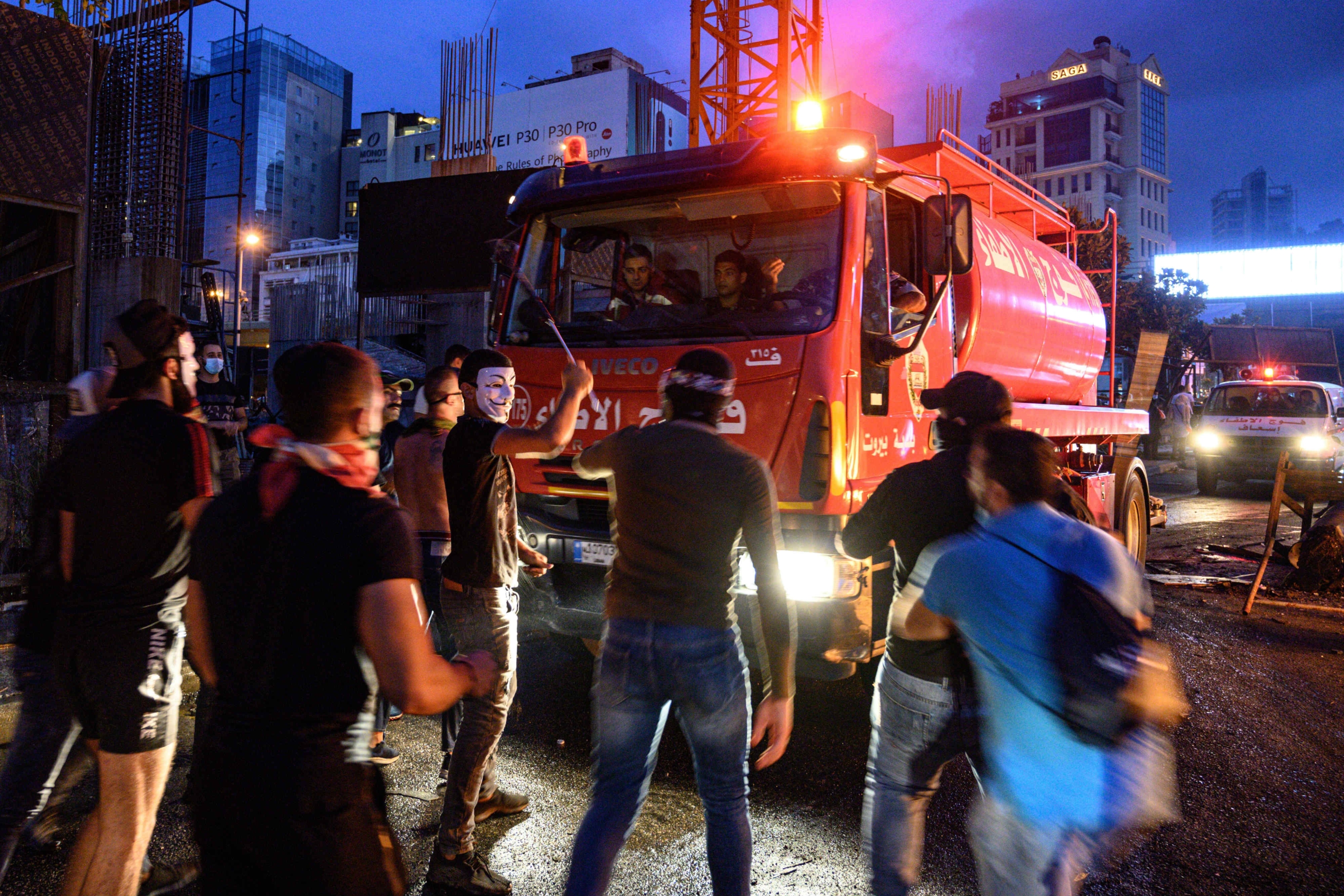
Protesters force fire engines away from a burning building just south of Martyrs' Square. While police vehicles and fire engines have not been allowed access to protester-controlled areas, ambulances have generally been given free movement (MEE/Finbar Anderson)
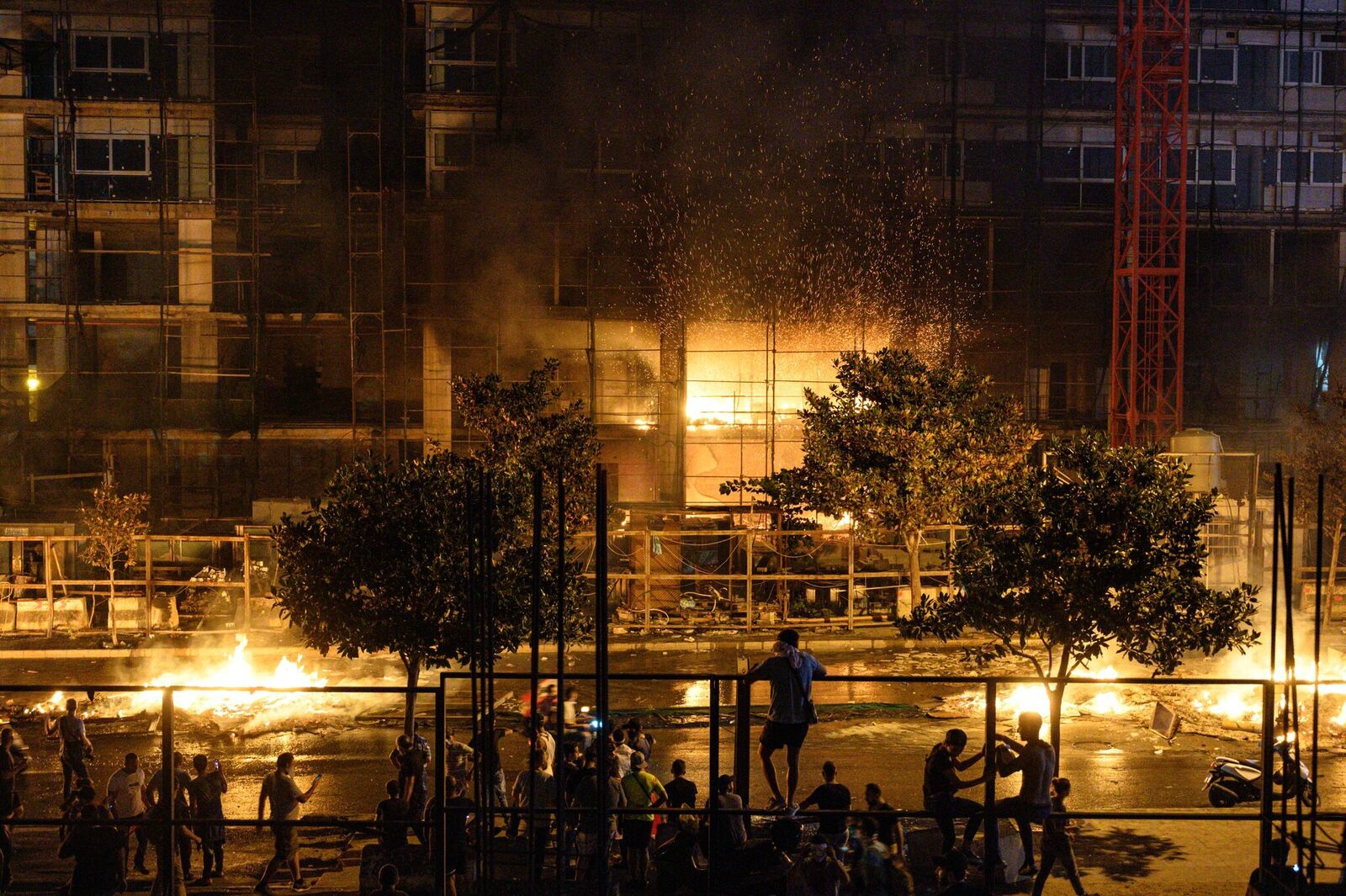
A partly-finished building burns as spectators look on in central Beirut. Work on this site has faced many delays, with the Lebanese property sector stagnant. After several hours the fire burnt itself out (MEE/Finbar Anderson)
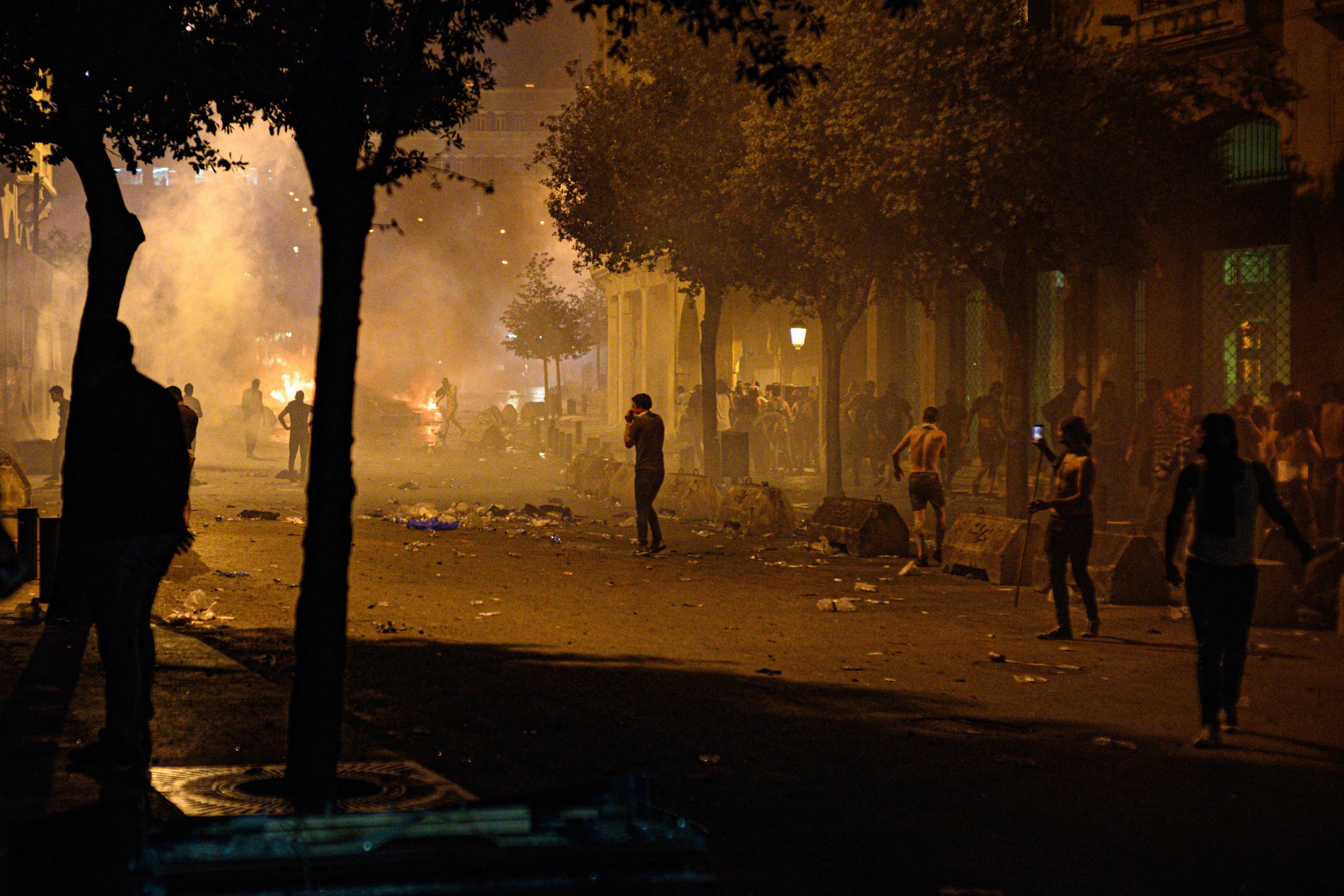
Protesters brave heavy tear gas fired by security forces in Riad al-Solh square. Security forces appeared to have a more clearly defined plan on Friday night, and briefly cleared the centre of Beirut before 11pm (MEE/Finbar Anderson)
Middle East Eye propose une couverture et une analyse indépendantes et incomparables du Moyen-Orient, de l’Afrique du Nord et d’autres régions du monde. Pour en savoir plus sur la reprise de ce contenu et les frais qui s’appliquent, veuillez remplir ce formulaire [en anglais]. Pour en savoir plus sur MEE, cliquez ici [en anglais].


